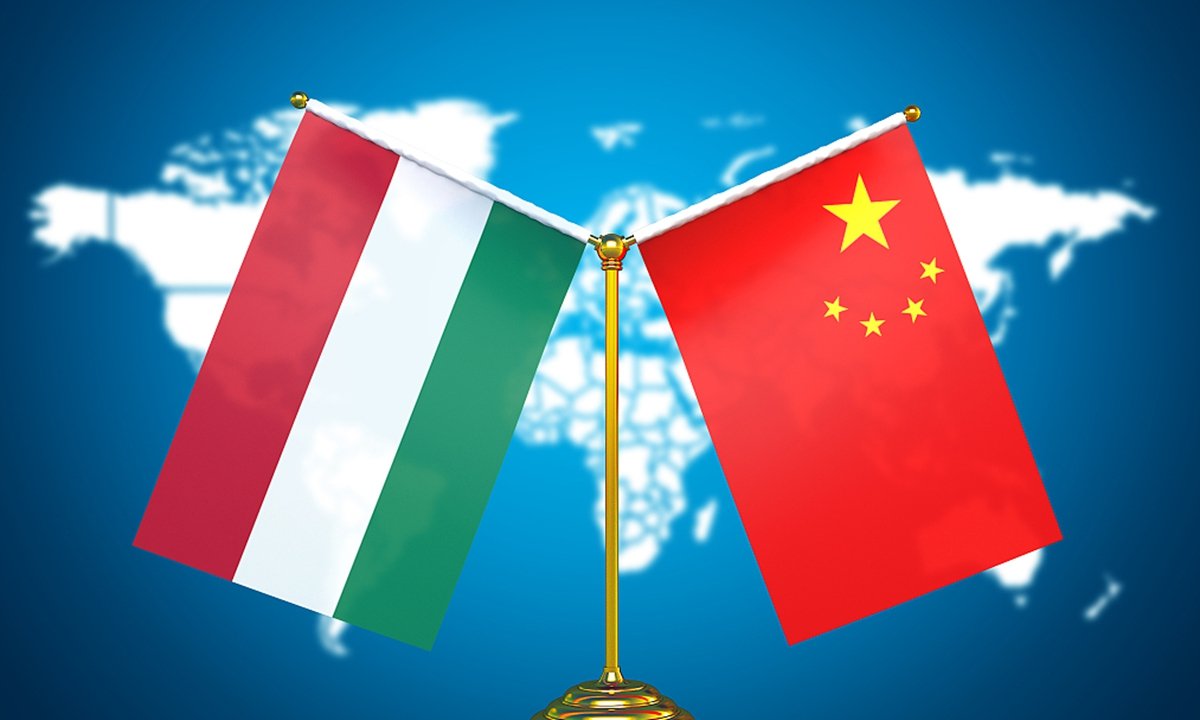Wang Yi, a prominent figure in the Political Bureau of the Communist Party of China Central Committee and the Foreign Minister of China, recently initiated a phone call with his counterpart from Hungary, Foreign Minister Péter Szijjártó. The primary objective of this conversation was to explore avenues of furthering collaboration between their respective nations and to discuss the dynamics of the European Union’s relationship with China.
Historic Collaboration: The Belt and Road Initiative (BRI)
One of the significant landmarks in China-Hungary relations has been Hungary’s pioneering step as the first European country to endorse the Belt and Road Initiative (BRI) through the signing of the cooperation document. The BRI, an ambitious multi-national project spearheaded by China, seeks to enhance international trade, infrastructure, and cooperation. China’s collaboration with Hungary under the BRI umbrella has yielded positive results. Such fruitful outcomes underscore the possibility of ushering in a redefined era of international relations that hinges on mutual benefits, trust, and collaboration. This partnership serves as a testament to the potential that cooperative international relations hold.
Upcoming Cooperation Prospects: The Third Belt and Road Forum
China is gearing up for the third Belt and Road Forum for International Cooperation (BRF). An event of this magnitude provides a platform for nations to discuss, deliberate, and devise strategies that further the goals of the BRI. Wang Yi extended a warm welcome to Hungary for its active participation in the forum. He expressed China’s intent to utilize this occasion to bolster the trust and camaraderie shared with Hungary. Such events provide an opportunity to chart out strategic plans, infusing new vigor and direction into bilateral relations.
Infrastructure Collaboration: The Hungary-Serbia Railway Project
An important area of synergy between China and Hungary is the proposed Hungary-Serbia railway project. Wang mentioned China’s keenness to collaborate with Hungary in bringing this monumental infrastructure project to fruition. Such joint ventures, besides being of economic significance, stand as tangible markers of pragmatic cooperation between nations.
China, Europe, and Trade Dynamics
During the conversation, Wang Yi touched upon a pressing issue concerning the European Union’s anti-subsidy investigation targeting Chinese electric vehicles. He underscored that such investigations run counter to the foundational principles governing international trade. Such moves, if pursued without nuanced understanding, could jeopardize the intricate supply chains of the global automotive industry.
Wang’s mention of China’s unwavering commitment to a green, low-carbon, and sustainable growth trajectory resonated with the developmental goals of the European Union. He highlighted the alignment of values and objectives between China and the EU.
Wang emphasized a vital perspective: Europe and China are collaborators, not competitors. A robust manufacturing sector’s evolution hinges on equitable competition rather than a protectionist stance. Wang voiced China’s aspirations for Hungary to champion a proactive and receptive EU policy towards China. He called for collective efforts to defend genuine multilateralism, with the United Nations being central. Such a framework, Wang believes, will catalyze a stable and positive progression in China-Europe relations.
Hungary’s Stance on Collaboration and European Dynamics
Szijjártó, on his part, recollected the significant strides both nations have achieved under the BRI. He acknowledged the manifold benefits that have accrued to Hungary due to this partnership. Asserting Hungary’s intention, he confirmed the nation’s active involvement in the third BRF. Hungary envisions further deepening the existing cooperation.
The proposed Hungary-Serbia railway project remains a priority for Hungary, as confirmed by Szijjártó. The nation perceives it as a linchpin to advance bilateral relations.
Regarding Europe’s policy dynamics, Szijjártó took a firm stance. He categorically expressed Hungary’s disapproval of the idea of “decoupling” from China. He envisioned a future marked by robust Europe-China cooperation. In this context, he emphasized Hungary’s reluctance to endorse any EU measures that could undermine equitable competition and collaboration.
Szijjártó, appreciating China’s endeavors towards ensuring European peace, articulated Hungary’s hope. He wishes for China to remain proactive in fostering peace and stability in the European landscape.
Conclusion:
The conversation between Wang Yi and Péter Szijjártó offers insightful glimpses into the evolving dynamics of international relations. The deliberations underscore the significance of collaboration, mutual respect, and the vision to forge ahead, making the world more interconnected and harmonious. As China and Hungary endeavor to expand their partnership, their discussions provide a blueprint for other nations to emulate and cultivate meaningful bilateral relationships.
Read More:
